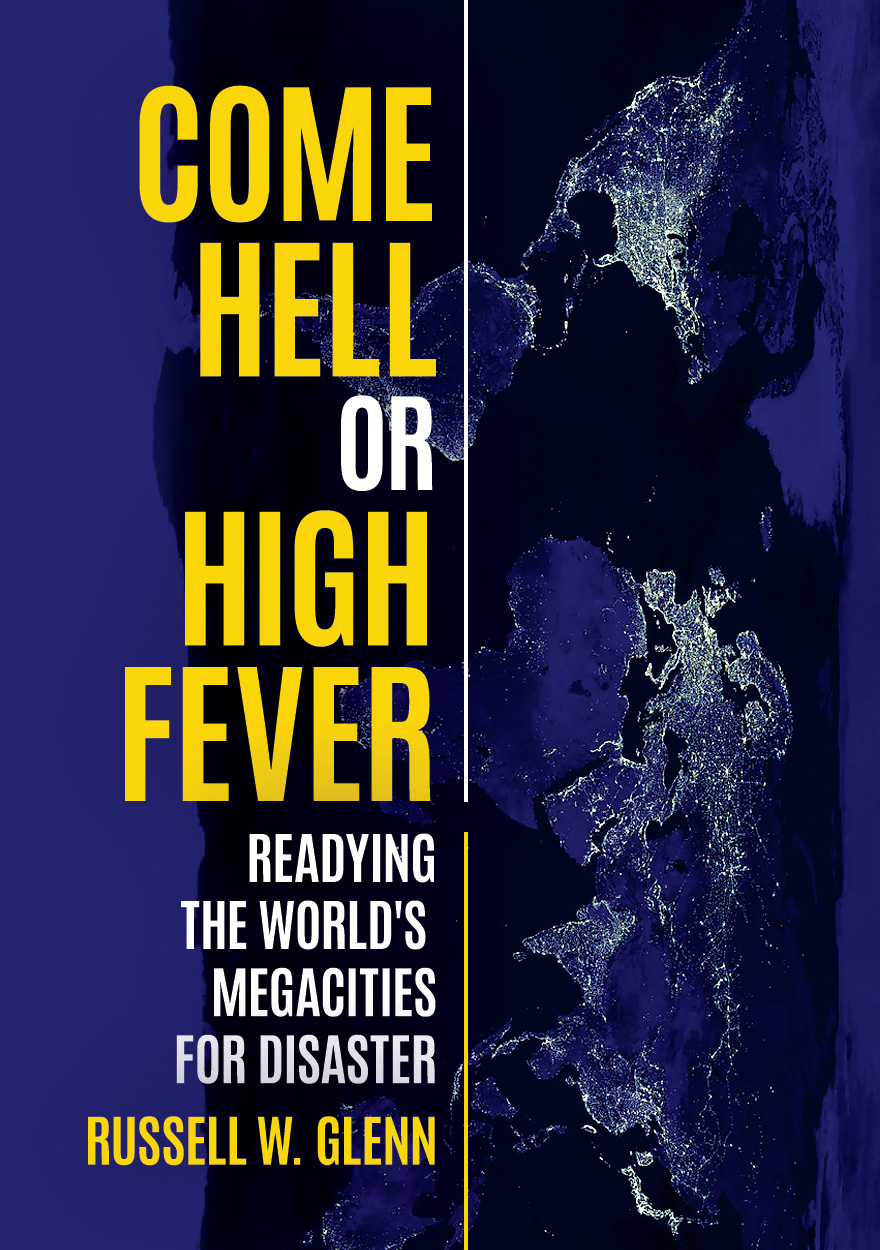Russell W. Glenn
Dr Russell W. Glenn spent 16 years in the think-tank community as a senior defence analyst after retiring from the US Army, later joining the faculty of Strategic and Defence Studies Centre at The Australian National University. His education includes a bachelor of science from the United States Military Academy and master’s degrees from the University of Southern California, Stanford University, and the School of Advanced Military Studies. He earned a PhD in American history from the University of Kansas. He is the author of more than 50 books or book-length reports on urban operations and other security-related topics. His most recent book, Trust and Leadership: The Australian Army Approach to Mission Command (2020), was a cooperative effort with serving and retired Australian Army officers.

Come Hell or High Fever »
Readying the World's Megacities for Disaster




